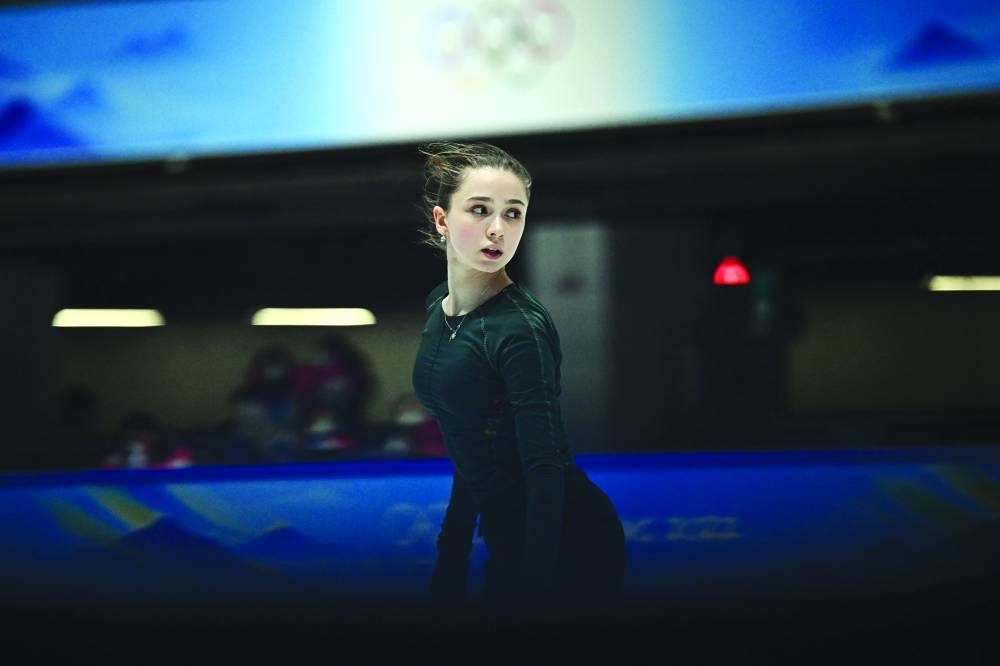Teenage Russian figure skater Kamila Valieva received a four-year ban from the Court of Arbitration for Sport (CAS) on Monday for failing a doping test prior to the 2022 Winter Olympics.
Valieva was found to have “committed an Anti-Doping Rule Violation (ADRV) under Clause 4.1 of the All-Russian Anti-Doping Rules of 24 June 2021,” said the three-member panel in sport’s highest court.
“A period of four years ineligibility is imposed on Ms Valieva, starting on 25 December 2021.
“All competitive results of Ms Valieva from 25 December 2021 are disqualified, with all the resulting consequences (including forfeiture of any titles, awards, medals, profits, prizes, and appearance money),” CAS added.
The World Anti-Doping Agency (WADA) welcomed the ban but took aim at those who had doped Valieva, who was just 15 at the time.
“The doping of children is unforgivable,” WADA said in a statement, which also called for action under its code against doctors, coaches and other support personnel who are found to have provided performance-enhancing substances to minors.
“WADA encourages governments to consider passing legislation - as some have done already - making the doping of minors a criminal offense,” it said.
By contrast, the Kremlin slammed what it called a “politicised” decision.
“Of course, we don’t agree with it...From my point of view, of course, it’s politicised,” Kremlin spokesman Dmitry Peskov told Russian news agencies.
Valieva’s positive test raised questions not just about her guilt but how she was treated as a minor, the way the test was conducted and the value of the drug involved for enhancing performance. The case came to CAS following Valieva’s exoneration by Russia’s anti-doping agency (RUSADA).
WADA and the International Skating Union (ISU) then appealed RUSADA’s ruling, as did RUSADA itself.
Three CAS judges met in Lausanne in September to hear the case with Valieva and some of the experts and witnesses taking part via videoconference.
In Beijing in February 2022, Valieva became the first female skater to land a quadruple jump in Olympic competition, helping Russia secure gold in the team event.
The next day, she was told she had tested positive before the Games for trimetazidine, a drug used to treat angina but banned for athletes.
With CAS’s ruling, the podium in the team event should now result in the United States being awarded gold, Japan silver and Canada bronze.
Under the pressure of suspicion and attention, Valieva cracked in the individual event in Beijing, stumbling four times in the long programme and finishing in tears as she tumbled from first to fourth.
At the end of the year, RUSADA ruled that Valieva bore “no fault or negligence” for the positive test.

(File photo) Kamila Valieva. (AFP)
